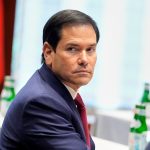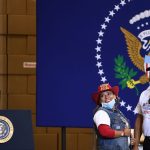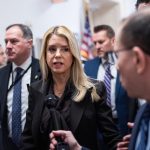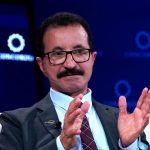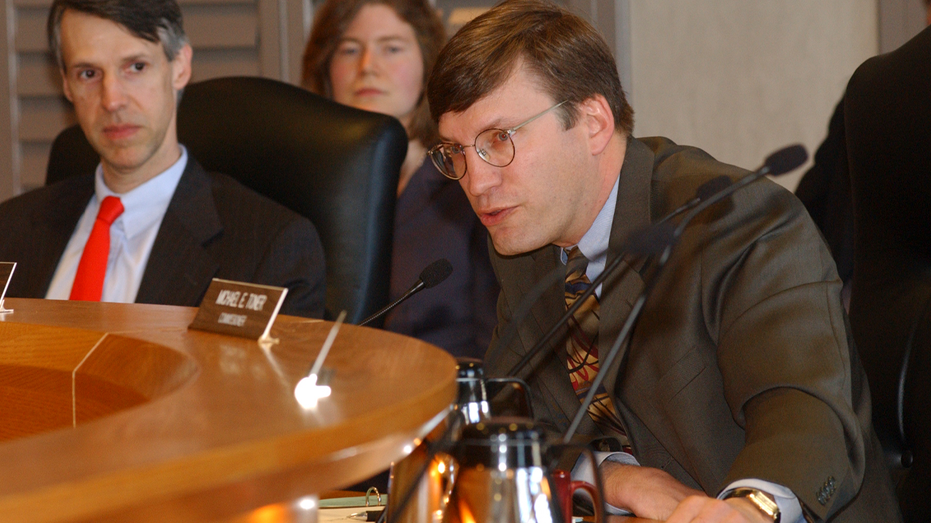Former President Trump’s legal team was slated to call on a former commissioner of the Federal Election Commission to testify in the NY v. Trump case, but the expert’s testimony was not heard after the presiding judge curbed the scope of what he could discuss before the jury.
“Judge Merchan has so restricted my testimony that defense has decided not to call me. Now, it’s elementary that the judge instructs the jury on the law, so I understand his reluctance,” former FEC Commissioner Bradley Smith posted on X on Monday.
“But the Federal Election Campaign Act is very complex. Even Antonin Scalia – a pretty smart guy, even you hate him – once said ‘this [campaign finance] law is so intricate that I can’t figure it out.’ Picture a jury in a product liability case trying to figure out if a complex machine was negligently designed, based only on a boilerplate recitation of the general definition of ‘negligence.’ They’d be lost without knowing technology & industry norms,” he continued.
Smith is an election law expert who Trump has called the “Rolls-Royce” of experts in his field, but he will not testify after Judge Juan Merchan ruled that Smith could speak before the court on the basic definitions surrounding election law but not expand beyond that scope.
NY V TRUMP: HOUSE JUDICIARY INVESTIGATES BRAGG PROSECUTOR WHO HELD SENIOR ROLE IN BIDEN DOJ
Trump was charged with 34 counts of falsifying business records in the first degree in the case. Manhattan District Attorney Alvin Bragg must prove to the jury that not only did Trump falsify the business records related to payments to former porn actress Stormy Daniels but that he did so in furtherance of another crime: conspiracy to promote or prevent election.
Smith served as an FEC commissioner and chair between 2000 and 2005. The FEC is the U.S. agency dedicated to enforcing campaign finance laws. His testimony was slated to shed light on prosecutors’ allegations that Trump falsified business records, which is a misdemeanor that has already passed the statute of limitations, in order to cover up an election violation.
Smith wrote on social media that while the prosecution’s star witness, Michael Cohen, was allowed to go “on at length about whether and how his activity violated” the Federal Election Campaign Act (FECA), he was barred from broadening the scope of his previously anticipated testimony, which “effectively” led to the jury getting “its instructions on FECA from Michael Cohen!”
Smith spoke with the Washington Examiner on Monday and discussed what he would have said in court if he testified.
“Judges instruct the juries on the law,” Smith told the outlet. “And they don’t want a battle of competing experts saying here’s what the law is. They feel it’s their province to make that determination. The problem, of course, is that campaign finance law is extremely complex and just reading the statute to people isn’t really going to help them very much.”
Smith said he anticipated “to lay out the ways the law has been interpreted in ways that might not be obvious” while noting election laws are very complicated matters.
9 QUESTIONS ABOUT TRUMP TRIAL, ANSWERED
“You read the law, and it says that anything intended for the purpose of influencing an election is a contribution or an expenditure,” Smith said. “But that’s not in fact the entirety of the law. There is the obscure, and separate from the definitional part, idea of personal use, which is a separate part of the law that says you can’t divert campaign funds to personal use. That has a number of specific prohibitions, like you can’t buy a country club membership, you can’t normally pay yourself a salary or living expenses, you can’t go on vacation, all these kinds of things. And then it includes a broader, general prohibition that says you can’t divert [campaign funds] to any obligation that would exist even if you were not running for office.”
COHEN’S BOMBSHELL ADMISSION COULD LEAD TO HUNG JURY, IF NOT ACQUITTAL: EXPERT
“We would have liked to flag that exception for the jury and talk a little bit about what it means,” Smith said. “And also, we would have talked about ‘for the purpose of influencing an election’ is not a subjective test, like, ‘What was my intention?’ It’s an objective test.”
The case surrounding Trump’s payments is one that both the Justice Department and FEC rejected to prosecute in recent years. The Justice Department in 2019 “effectively concluded” its investigation into Trump’s payments. While in 2021, the Federal Elections Commission announced that it had dropped a case looking into whether Trump had violated election laws for the payment to Daniels.
JIM JORDAN DEMANDS NY AG HAND OVER DOCUMENTS RELATED TO FORMER DOJ OFFICIAL AT HEART OF NY V TRUMP
Smith has previously joined Fox News, where he also noted that the “Federal Election Commission chose not to act on this.”
“DA Bragg in this case waited, I think it was almost a year, before even bringing the charges. And I think that’s because the charges were flimsy. And as you point out, they’ve been, you know, the prior DA had said, ‘No, we’re not going to bring this.’ The DOJ said no. The Federal Election Commission said no. And when he got increased political pressure, he brought the case,” Smith told Fox News host Mark Levin earlier this year before the trial kicked off.
Smith also wrote an opinion piece published by The Federalist last month, when the trial kicked off, arguing that Bragg’s office had “one big problem” with the case.
“The [prosecution’s] theory is that Trump’s payments to Daniels were campaign expenditures and thus needed to be publicly reported as such. By not reporting the expenditure, the theory goes, Trump prevented the public from knowing information that might have influenced their votes,” he wrote in the opinion piece.
“There is one big problem with this theory: The payments to Daniels were not campaign payments.”
He said political candidates frequently act in ways that could be interpreted as serving a “purpose of influencing an election,” that politicians could get their teeth whitened or buy a new suit with campaign funds to look snappy on the campaign trail.
“That’s because, in campaign finance law, these types of expenditures are known as ‘personal use.’ FECA specifically prohibits the conversion of campaign funds to personal use, defined as any expenditure ‘used to fulfill any commitment, obligation, or expense that would exist irrespective of the candidate’s election campaign,’” he wrote.
TRUMP TOUTS DEFENSE TEAM HAS ‘WON’ MANHATTAN CASE AS HE CALLS ON MERCHAN TO DISMISS
Smith continued on X on Tuesday that Bragg’s case hinges on prosecutors proving that Trump tried to influence an election through “unlawful means,” but the office has to rely on their own evidence as the DOJ and FEC both denied pursuing the case.
“If that’s the case, isn’t it entirely relevant (not dispositive, but relevant) to the jury’s fact-finding on that question that neither DOJ nor FEC chose to prosecute? But Judge Merchan won’t allow that in,” he wrote. “He will, though, allow in numerous references to Cohen’s guilty plea, and allow Cohen to testify as to how he thinks he and Trump violated FECA – though it appears that Cohen is a dunce about campaign finance laws.”
The defense team rested Tuesday, with Merchan dismissing the jury until after Memorial Day. Closing arguments are anticipated to kick off next Tuesday following the holiday.


